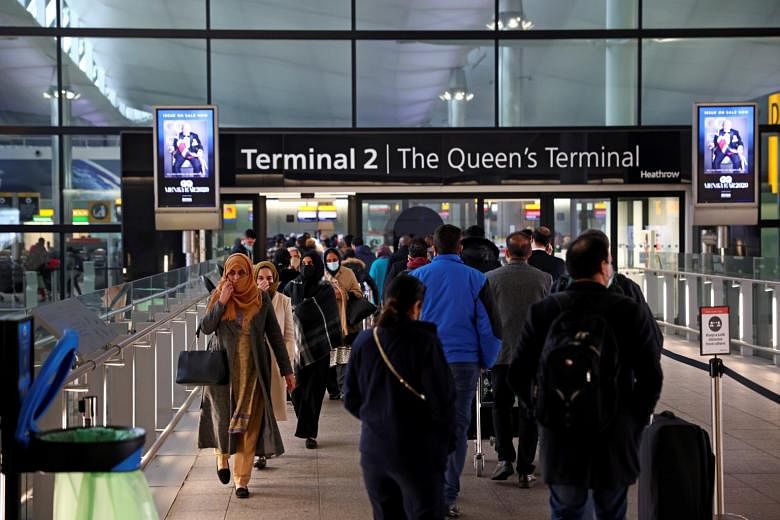LONDON - British Prime Minister Boris Johnson announced that his government will allow most retail outlets to reopen from April 12, alongside gyms and personal care businesses such as hair salons and barbershops.
But although Mr Johnson expressed satisfaction with the sharp fall in coronavirus infections and hospitalisations, he stopped short of providing details about what is rapidly becoming one of the most controversial topics on his country's long road out of the pandemic: when would the Brits be allowed to travel abroad, and whether they would be required to possess "vaccination passports" to access services both at home and abroad.
Nonetheless, Mr Johnson defended the idea of a document indicating the vaccination status of its bearer as "being useful for international travel".
"I do think that's going to be part of the way people deal with (travel) and we need to think about that," he said.
The Johnson government is proud that it not only leads Europe but also much of the world in how fast it carried out its Covid-19 vaccine roll-out. The country has already administered the first dose of a vaccine to well over half of its adult population and to almost everyone over 50 - the cohort most likely to suffer serious health complications from a coronavirus infection.
And although some shortages in vaccine supplies are expected this month and the threat of a vaccine "trade war" with the European Union remains a distinct possibility, the British authorities have enough stocks to administer the second vaccine dose to those already inoculated and are confident of extending vaccinations to all adults by June.
Britain's 14 overseas dependent territories - small yet scattered around the world - have also been inoculated.
The government's performance has boosted Mr Johnson's popularity and given him ample room for manoeuvre.
Unlike his European counterparts, Mr Johnson faces no popular backlash or public disobedience campaigns against lockdown measures and can talk about lifting restrictions in a more leisurely manner.
The milestones ahead are also clear. After the opening of most shops at the start of next week, a further easing will take place on May 17 to allow people to drink and dine indoors, as well as to contemplate the possibility of travelling, followed by the abolition of all restrictions by June 21, assuming infection rates stay down.
But the government is mired in a dispute about the prospect of vaccine passports, a row which is already turning into one of those rare public clashes that unite both rebel MPs from Mr Johnson's own ruling Conservative party and those from Labour, the country's main opposition.
Some lawmakers are against the idea of vaccine passports on grounds of personal liberties. The British do not have identity cards, and are deeply suspicious of any document that can end up as an ID.
Other MPs are more perturbed by the fact that the introduction of a vaccine passport would create a "two-tier Britain", as former Conservative chief parliamentary whip Mark Harper put it, by preventing those who are not vaccinated from travelling or accessing certain services for years to come.
Aware that he is walking into a political minefield, all that Mr Johnson would say at this stage is that no vaccination certificates would be required for people going shopping or exercising in a gym; the model adopted by Israel, which requires people to produce a barcode on their cellphone attesting to having been vaccinated, will not be followed in Britain.
However, he refused to rule out vaccine passports altogether and carefully avoided giving any indication of whether the issue would even be discussed in Parliament, where the government is by no means confident of getting a majority.
In fact, it is clear that Mr Johnson is determined to test the use of such vaccine documents on an experimental basis for admitting people to several big public events such as open-air concerts over the next two months, with a view to rolling out a more national standard scheme of vaccination documents by end-June, after discussions with other foreign governments.
That will be accompanied by the introduction of a "traffic light" system of classifying foreign countries to which Brits can travel, based on infection risks and the documents other countries will require.
Mr Mark Harper, the leading rebel MP, already smells a rat in the government's behaviour: He warned the Prime Minister that it would be unacceptable to "introduce these domestic vaccine passports by the back door".
But Mr Johnson already seems to have the answer to this challenge. The new documents will not be called passports. Instead, they will go by the neutrally sounding "Covid Status Certificates".












